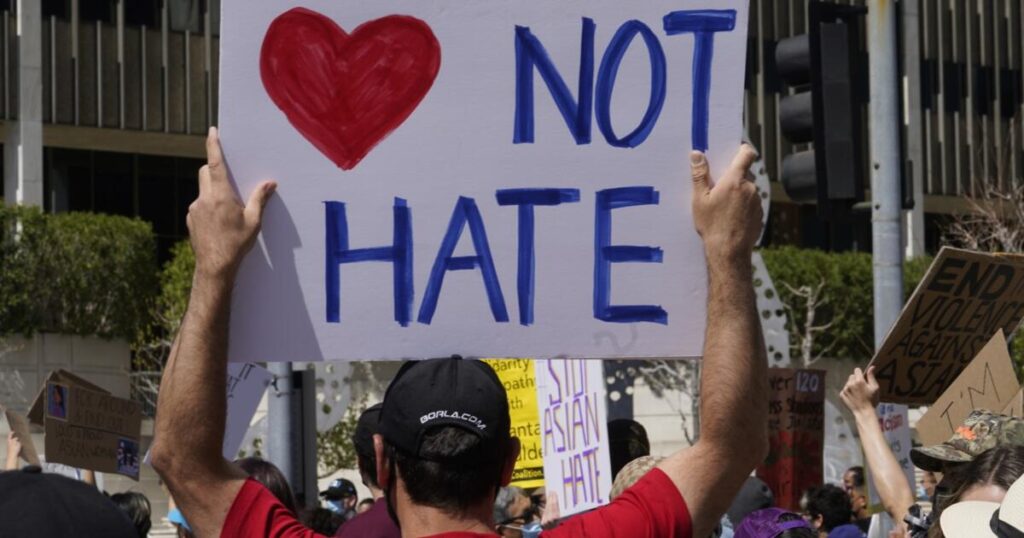In the year since California opened a hotline to report hate crimes, the majority of calls have been related to race or ethnicity, with 26.8% citing anti-Black bias. State officials announced Monday that the second and third largest incidents involved anti-Latino and anti-Asian bias.
The statewide hotline aims to address the rise in hate crimes in California during the COVID-19 pandemic by compiling a comprehensive database to track incidents and provide alternatives to police intervention. In the year since the program launched, the state has received 1,020 reports of hate crimes, including accusations of discrimination and harassment. Most claims were reported in residential or apartment complexes and workplaces.
“This program is new. Therefore, these data should not be viewed as representative of all acts of hate in our state. We have more work to do,” California Department of Civil Rights Director Kevin Kish said at a news conference Monday. explain.
When someone calls, they can ask to be contacted for mental health services, for assistance filing a civil rights complaint, or for referral to legal services.
The incident comes after a reported increase in crimes against Jewish and Palestinian communities and as the state Legislature considers a reparations package aimed at remedying the legacy of slavery.
“There is no doubt that the work of reparations is directly related to the work of fighting hate,” said Becky Monroe, deputy director of strategic initiatives and external affairs for the California Department of Civil Rights. She called hate crime reporting efforts “central” to the state’s reparations plan.
Racial and ethnic bias was the most frequently cited reason for calls, accounting for more than a third of the calls received, state data shows. The second largest category was related to gender identity, accounting for 15.1% of calls, while calls related to sexual orientation accounted for 10.5%.
Calls related to anti-Semitic violence accounted for 36.9% of religiously targeted calls. The second most reported category was Hindu bias, accounting for 23.3% of calls. Anti-Muslim bias accounted for 14.6 percent, according to figures released by state officials.
Asked whether there had been an increase in reports of religion-based hate crimes following the Oct. 7 terror attack in Israel and the subsequent war against Hamas, Monroe said: “We do see anti-Semitic, anti-Muslim, anti-Muslim, – Arab Americans, anti-Palestinian. We’re seeing an increase in all of that…but I hesitate to give you a reason.
She said October is also the time they publicize the line.
People who call (833) 866-4283 or 833-8NOHATE can contact the trauma-informed care coordinator who works for the program. Translations are available in more than 200 languages.

